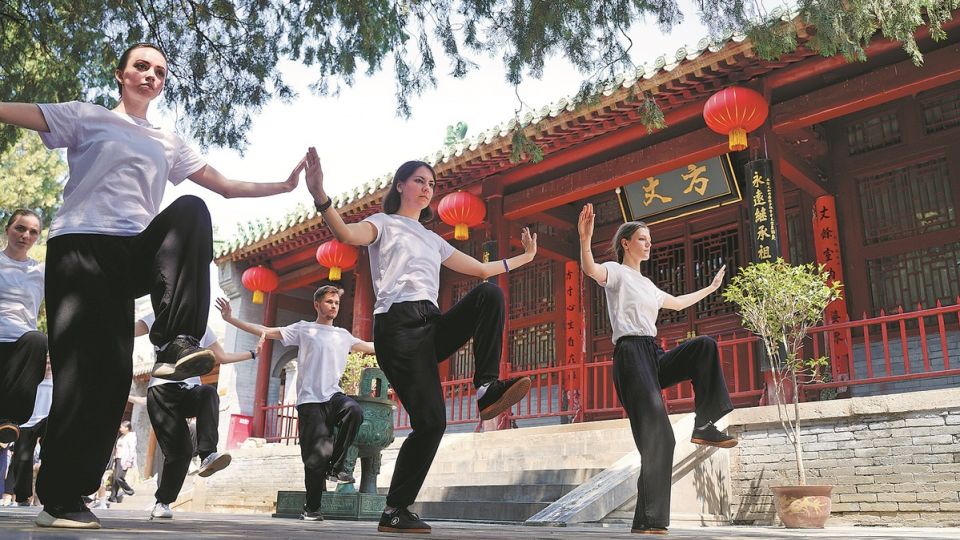June 21, 2024
BEIJING – Shaolin Temple, a cradle of Chinese culture renowned for its martial arts and Buddhist traditions, is hosting 101 Russian disciples for a two-week immersion program.
This year marks the ninth such program organized by the Moscow Shaolin Culture Center. The participants, ranging from age 16 to 72, will learn Shaolin kung fu, delve into the practices of Chan Buddhism and experience daily life at the historic temple in Henan province.
Among the participants is Sofia Stepanova, a 16-year-old who said she has been captivated by the beauty of the temple and is eager to improve her martial arts skills and Chinese language proficiency.
“Shaolin Temple is beautiful, and I enjoy being here and learning new things about the history of China,” she said. “My goals for this trip are studying martial arts, exploring Chinese culture and practicing Chinese, the language that I’ve studied for many years since I was a kid.
“Everything here is amazing, including the food, the traditions and customs, the people, and the towns and cities.”
Stepanova expressed her gratitude for the opportunity to participate in the program.
“Every day I learn new words and cultural things,” she said. “I love learning new languages. I also speak English and French, and am learning Latin and ancient Greek.
“I want to go to university and study medicine, including Chinese medicine. Acupuncture is wonderful, and I hope to use it in my future practice.”
Shi Yanbin, 56, director of the Moscow Shaolin Culture Center and the organizer of the program, said the Russian disciples are enthusiasts of Chinese culture and Shaolin kung fu.
“The disciples are divided into four classes, and I lead a class of about 30 people,” he said. “We teach them Shaolin kung fu, calligraphy and Chan practices. They usually get up at 4 am and go to sleep around 11 pm. The Shaolin Temple is very quiet at night, which helps them find inner peace.”
Shi, who has lived in Moscow for 20 years, said the center he works for has over 2,000 Russian disciples and followers, with children and youths making up 40 percent.
“I have stronger cultural self-confidence because of China’s good development in recent years,” he said.
The Shaolin Temple, located in the Songshan Mountain range in Dengfeng, Henan, is currently led by Abbot Shi Yongxin. Built during the Northern Wei Dynasty (386-534), it is recognized as the birthplace of Chinese kung fu and Chan Buddhism and was listed as a UNESCO World Heritage site in 2010.


